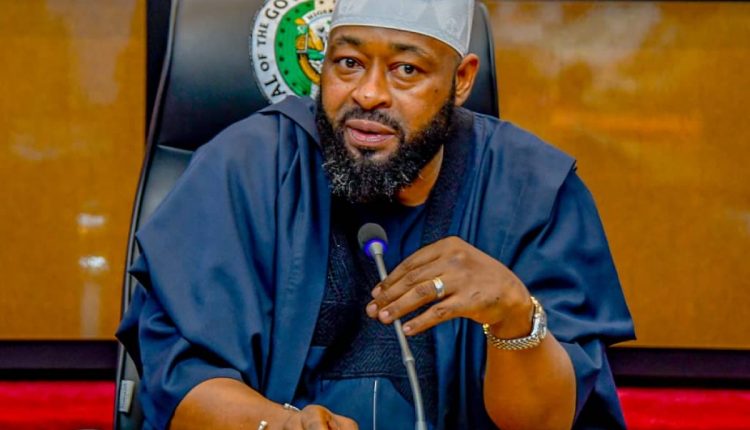Niger Governor Bago’s Sermon Policy Triggers Controversy Among Clerics
Umar Bago, the governor of Niger State, has sparked debate among religious leaders by declaring that clerics must submit sermons for evaluation and acquire licenses within two months.
“Everyone going to sermon on Friday should bring his scriptures for review,” the governor reportedly said in a TVC interview.
The statement has sparked discussions throughout the state, with some applauding it as a daring move in the direction of peace and others worrying that it would violate religious freedom.
But in support of the governor, Niger State Religious Affairs Director-General Umar Farooq explained that the new policy is actually the resuscitation of an edict from 1985.
“In Niger State, we have a legislation… It’s not a new policy; the edict law has existed since 1985. In order to maintain tranquil surroundings and prevent escalating tensions, we are currently working to revitalize the law and make it useful,” he stated.
The government has not outlawed preaching, he continued, but priests should use caution while speaking.
“Anyone does not have the right to speak whatever they want just because they are a cleric. In Niger State, preaching has not been outlawed. Farooq emphasized that the objective is not to silence anyone but to sanitize the preaching area and maintain harmony. “The governor did not ban preaching, but all preachers must avoid spreading hatred, inciting violence, or insulting other people and institutions,” Farooq stated.
Additionally, the DG disclosed that the government will:
Forms are distributed by religious organizations to register clerics and build a database.
Preachers will receive training and capacity building before receiving credentials.
Make certain that groups and sects serve as guarantors for their pastors.
“We target their groups when a preacher violates these rules because their sect is familiar with them and will provide guarantors,” Farooq stated.
The CAN’s “Directive For Muslim Clerics Only”
The Niger State chapter of the Christian Association of Nigeria (CAN) has emphasized that the directive currently only applies to Islamic clerics who are registered with Da’awa.
Daniel Atori, an advisor to the State CAN Chairman, clarified in a statement provided to reporters in Minna: “When the news first broke, many thought it covered everyone, pastors, reverends, and imams.” However, it became evident after study that the decree was primarily intended for Islamic clerics who were registered with Da’awa.
He connected the action to allegations that certain preachers were spreading incendiary ideas, especially in places where their sermons were said to have questioned democracy and sparked unrest.
We at the Christian Association found that Christians were exempt from the mandate. According to Atori, the form is only for the Islamic community.
Cleric Issues a Warning Against Political Manipulation and Extremism
The decision may have been driven by the emergence of extremist speakers and sect disputes, according to Jabeer Mukthar Salisu, an Islamic cleric based in Kano.
“Clerics have disciples, and they take seriously anything they say. The government should not grant a license to a clergyman who has a history of inciting violence, he contended.
But some worry that the law can be misused, he cautioned. Many are concerned about whether the government would utilize this law to silence anyone who disagree with it. People will continue to worry until guidelines are released,” Salisu said.
“Even if this government is sincere, another might use it to push their own agenda,” he added, warning that future administrations might politicize the bill.
Barrister Usman Yau, a lawyer, maintained that the governor was acting in accordance with the law.
“There is nothing the governor is doing that is against the constitution. State governments have the legal authority to create and implement laws that support peace and order, and the edict has been in place,” he said.
Yau clarified that edict legislation enacted during military administration continued to be enforceable in democratic settings.

